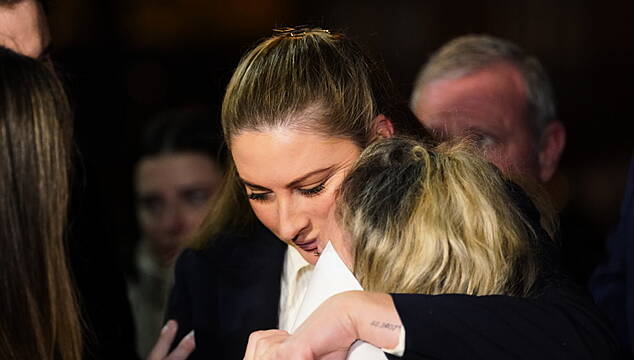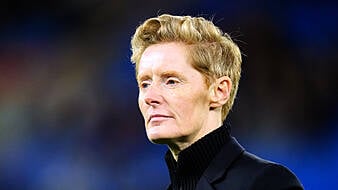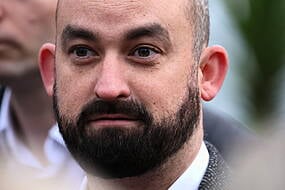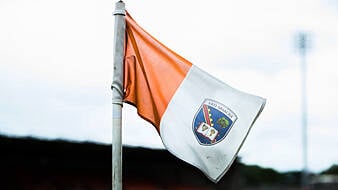High-profile individuals like Conor McGregor have followers and supporters who subscribe to a brand of "extremely traditionalist, domineering, misogynisitic masculinity".
This is the view of the chief executive of Women's Aid, Sarah Benson, who said Nikita Hand's civil rape case win against the MMA star shows progress is being made, but that some of the backlash Hand faced shows there is still work to do around victim blaming.
"We're making progress. Women are being believed. Judges are understanding the principles of consent, which is so important," Benson said.
"But on the other hand, there's a huge amount of work to do with some people in society around victim blaming, continuing stigma, double standards and basically normalising or excusing sexual violence or other forms of abuse."
Hand was awarded costs in her civil action against McGregor, after a jury found she had been raped by him in Dublin six years ago. She was awarded almost €250,000 in damages against McGregor after a three-week civil trial last month.
Benson, who has been the chief executive of Women's Aid since 2019, said that high-profile cases like Hand's can be encouraging for survivors of domestic abuse, sexual abuse, and rape, but added that there is "backlash that comes with it".
Recent research into attitudes, influence, and well-being among Irish men released by Women's Aid showed that two in five hold ‘traditionalist’ views.
This includes agreeing or being unsure on statements such as “men who don’t dominate in relationships aren’t real men” (52 per cent), “a man’s worth is measured by power and control over others” (54 per cent), and “real men shouldn’t have to care about women’s opinions or feelings” (46 per cent).
Of these ‘traditionalist’ men, 70 per cent believe that women’s issues are exaggerated.
Compared to the “moderate” group (three in five men), traditionalists are more likely to be younger men, with 67 per cent of men aged 18-29 years old holding more traditional views, or less certain about more moderate views.
Women's Aid said this trend suggests that younger men may be more influenced by contemporary online figures who promote traditional masculinity.
"Digging into the reported findings, we see the possibility of the outside influence of online role models and in fact, the algorithms, on social media platforms," Benson said.
"What we know from other research done by groups in the likes of DCU is that young boys, young men, very, very quickly, even if they are searching for benign things in relation to their interests, sports and things like that, very quickly on apps like YouTube and TikTok are dragged by the algorithm down very dark, very misogynistic rabbit holes.
"And to content that kind of reinforces or amplifies messages that, you know, young men are alienated or disenfranchised, that they are losing out.
"So I think the takeaway from it was that more older men, who fall into that category of the fathers, the uncles of these young men, and who have the more moderate views, there's a huge opportunity and perhaps an urgency for them to start to have conversations with the younger men in their lives to discuss a more positive and more expansive concept of masculinity, which also allows men to be more emotionally open, more authentic, more diverse than that really narrow, prescribed, almost caricature, which is something like what Conor McGregor manifests."
Benson said the impacts of these influences on young men manifest in their intimate relationships.
"I mean really shocking information coming now from the most recent Eurostat study on domestic abuse across Europe and abuse suffered by women in general shows that younger women are suffering really staggering levels of abuse from their intimate partners and sexual abuse higher statistically than other European countries," she said.
“We know that pornography has an enormous role to play in reinforcing these stereotypes.
"We have to look at these messages young men are internalising. What they also think young women want or what is expected of them really aren't necessarily healthy.
"I think we can't start from the position of saying young men are somehow inherently dangerous or bad.
"What we can say is that there's outside influence of certain culture and social factors that are amplifying these really old traditionalist messages that are certainly not helping support equality, certainly not helping support equal meaningful relationships, and are having real, really serious consequences, both physically and emotionally for young women and girls as well."
Social media regulation
Benson said online social media regulation is something that is desperately needed to help combat these issues.
"We can’t compete with something that is literally addictive, and which is gaining the consumption of what is being fed to girls and boys, men and women, in really different gendered ways.
"Girls are, for example, much more likely to be dragged down rabbit holes that relate to material that can encourage eating disorders or really problematic beauty ideals that can cause terrible impacts on their mental health, and which certainly don't promote any kind of diversity or difference.
"Boys are also receiving those, but then they're also being fed this idea of often misogynistic, but also often homophobic material."
If the algorithms are dragging people down these holes, then we must look at much more meaningful social media regulation, she said.
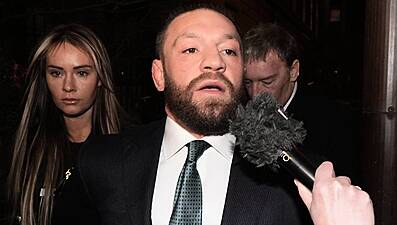
"And of course, we need to look at the quality and the content of relationship and sexuality education, we need to really support and empower parents or people who have young people in their lives to have what can be kind of frightening conversations.
"There are good resources out there to support parent to talk in age-appropriate ways about pornography, about healthy relationships, healthy friendships, and also just listening to and giving young people space to kind of break out of the stereotype that they think they maybe have to conform with."
If you have been affected by any of the issues raised in this article, you can contact Women’s Aid (24-hour freephone helpline at 1800-341 900, email helpline@womensaid.ie) or Men’s Aid Ireland (confidential helpline at 01-554 3811, email hello@mensaid.ie) for support and information.
Safe Ireland also offers a number of local services and helplines at safeireland.ie/get-help/where-to-find-help/. In the case of an emergency, always dial 999/112.
